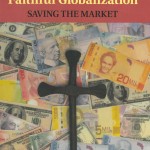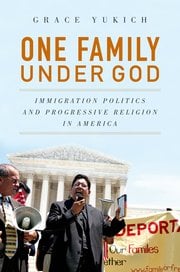Perhaps it’s my imagination, but “fact checking” this election season seems to have reached a fever pitch. This despite the historically weak tie between facts and politics in general, it would seem. Perhaps I’m overly sensitive to it, given the word-by-word scrutiny to which my own work and media interviews have been subject recently. (Not that the media would ever misquote someone…)
But after “lecturing” to a class of 12-year-olds yesterday on some themes in the book of Exodus, I am reminded again of the difference between moderns’ assumptions about detailed history–what we often mean by “the facts”–and historiography, the telling of history over time and from particular perspectives. Moreover, the former is not very easy to accomplish, and always, always misses material and meanings. It’s partial by definition. This came to mind when I briefly noted to the class that Exodus 1:6 simply states, “Then Joseph died, and all his brothers, and that whole generation.” The author (or authors/redactors) of that text clearly was not interested in conveying the details of the aging and death of the sons of Jacob–indeed, most of their lives and that of their children and their families–but rather with the rise of Moses and the Mosaic Law, from the perspective of those under it. So they paid some things no attention. So be it. (Then you have the lengthy lineages found in a variety of places in the Pentateuch, where we moderns feel like they paid too much attention to detail.)
People are often tempted to think that such a peculiar way of doing history is flawed, but in reality all accounts of “news” or “facts” are perspectival and partial. There is what actually happened–if it can be known–and then there’s the teller, who is a complex person (or organization) with interests, by default. There’s a philosophy of history embedded in all history writing, and indeed even in all news media. In a world increasingly short on attention span but long on bandwidth, this should only grow more familiar to us, not less. Take, for a recent example, the recent death of our Libyan ambassador. There are the facts, and frankly they may never be known with certainty, not simply because some people “won’t tell,” but because eyewitnesses saw different content and perceived different meanings, and have complex interests in relating “the facts” to those different sorts of persons (with quite different interests) who ask them. Add to that the untimely occurrence of this in an election season, and Senate and/or House hearings on the matter, and political sabre-rattling, and you can see how layers of interpretation are added.
And yet we still speak glowingly of “the facts.” In the Era of Science, we sense somehow that facts are always knowable. We presume someone is guardian of The Truth About Things.
This is normal behavior. What’s not normal, because it’s not really possibly in a strong way, is to have a very good grasp of “all the facts.” What’s relevant, after all? Even what counts (or is ignored) as evidence is constituted by particular perspectives. A recent critic of mine suspects I have been directly aiding the Romney campaign, but I’m not sure that the utter lack of evidence will convince them that I am not. To the critic, it’s simply evidence that my aid is more clandestine and thus I am even more suspect.
So it’s often an unrealistic challenge to learn all the facts about events that have already occurred, even recent ones, let alone those that have not. So “fact-checking” presidential candidates and their promises, budgets, plans, etc., is almost a joke. Almost. Moreover, to flippantly accuse one of them (but not the other) of lying–a ubiquitous occurrence of late–is to misunderstand all this.
It would behoove us all in this election season to understand that all politics involves some deceptions, and that human memory fails, and that people misspeak. We ought to remember that the public will always dislike “the facts” if they were all laid bare (and in today’s world, more are laid bare than ever before). This is true about most any of us, for that matter. Let’s be grateful that our thoughts–and for many, their words and actions–aren’t always an open book. We are flawed persons electing flawed candidates who will no doubt run flawed administrations. The two candidates for highest office have quite different philosophies on governance, rights, goods, economics, the role of the State, etc. (and probably most importantly, very different teams of trusted advisors and assistants). Vote on those. Not on some wistful idea of honesty and commitment to “the facts.” Politics has never dealt deeply in that.











